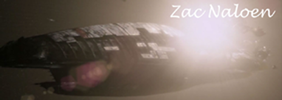http://alternet.org/environment/58604/
I find myself at loss of words.AMY GOODMAN: The soft drink giant Pepsi has been forced to make an embarrassing admission: Its bestselling Aquafina bottled water is nothing more than tap water. Last week, Pepsi agreed to change the labels of Aquafina to indicate the water comes from a public water source. Pepsi agreed to change its label under pressure from the advocacy group Corporate Accountability International, which has been leading an increasingly successful campaign against bottled water.
In San Francisco, Mayor Gavin Newsom recently banned city departments from using city money to buy any kind of bottled water. In New York, local residents are being urged to drink tap water. The U.S. Conference of Mayors has passed a resolution that highlighted the importance of municipal water and called for more scrutiny of the impact of bottled water on city waste.
The environmental impact of the country's obsession with bottled water has been staggering. Each day an estimated 60 million plastic water bottles are thrown away. Most are not recycled. The Pacific Institute has estimated 20 million barrels of oil are used each year to make the plastic for water bottles.
Economically, it makes sense to stop buying bottled water as well. The Arizona Daily Star recently examined the cost difference between bottled water and water from the city's municipal supply. A half-liter of Pepsi's Aquafina at a Tucson convenience store costs $1.39. The bottle contains purified water from the Tucson water supply. From the tap, you can pour over 6.4 gallons for a penny. That makes the bottled stuff about 7,000 times more expensive, even though Aquafina is using the same water source.
Gigi Kellett of Corporate Accountability International joins us in Boston, the group spearheading the Think Outside the Bottle campaign. We're also joined by freelance writer Michael Blanding. Last year he wrote an article for Alternet.org called "The Bottled Water Lie." We welcome you both to Democracy Now!
I want to begin with Gigi Kellett. Talk about Pepsi's admission.
GIGI KELLETT: Well, after a couple of years of our Think Outside the Bottle campaign, we have been asking of the bottled water corporations to come clean about where they get their water, what is the source of the water that they're bottling, because most people don't know that Pepsi's Aquafina, Coke's Dasani, come from our public water systems. And so, after thousands of phone calls, thousands of public comments submitted to the corporation, and us taking these demands directly to the corporation's annual shareholder meeting this year, Pepsi last week made the announcement that it would reveal that it gets its water from our public water systems.
AMY GOODMAN: Now, where exactly does Pepsi get it? Which public water supply?
GIGI KELLETT: Well, that is the issue that we're really looking at next, is what cities are they bottling the water in. You know, here in Massachusetts, it's coming from Ayre, Mass. So we want to make sure that on those bottles it says: "Public water source: Ayre, Massachusetts." That way, people know exactly what they're getting when they're buying that Aquafina bottled water.
AMY GOODMAN: Ayre being the name of a town in Massachusetts.
GIGI KELLETT: Ayre is the name of a town, right. Exactly.
AMY GOODMAN: And what happens to the town? They have their public water supply, and they have the plant for Pepsi?
GIGI KELLETT: That's right. We want to make sure that -- you know, Pepsi has certainly taken a lead on this for the bottled water industry, and we want to make sure that Coke and Nestle also follow suit. One of the things that we're finding as we're talking to people about this issue on the street is that they don't know where the water is coming from. And the bottled water corporations have spent tens of millions of dollars on ads that make people think that bottled water is somehow better, cleaner, safer than our public water systems. And in reality, we know that that's not true. And so, we want to make sure that we're increasing our people's confidence in their public water systems once again and knowing that we need to be investing in our public systems.
AMY GOODMAN: Gigi, can you go further on who owns what? You mention Nestle. What does Nestle own?
GIGI KELLETT: Nestle owns several dozen brands of bottled water. The bottled water brand they source from our public water systems is called Nestle Pure Life. They also own Poland Spring, Ozarka, Arrowhead. The list goes on. And regionally, it's distributed across the country. And then we also have Coca-Cola, which bottles Dasani water, and, of course, Pepsi with Aquafina.
AMY GOODMAN: And when it comes to being tap water, what is the difference between plain tap water and distilled water from these public sources.
GIGI KELLETT: Well, there's very little difference. You know, our public water systems go through a very rigorous testing and monitoring system and is tested by the Environmental Protection Agency. So we want to make sure that people know that our public water systems are much better regulated than these bottled water brands, which don't have to go through the same rigorous type of process.





